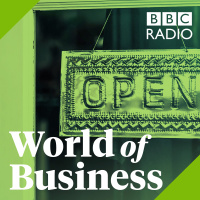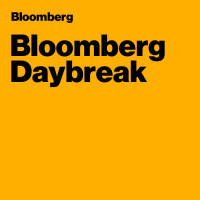Sinopse
Intelligence Squared is the world’s leading forum for debate and intelligent discussion. Live and online we take you to the heart of the issues that matter, in the company of some of the world’s sharpest minds and most exciting orators. Join the debate at www.intelligencesquared.com and download our weekly podcast every Friday.
Episódios
-
China: Friend or Foe?
01/03/2019 Duração: 01h25minIs China, with its unfair trade policies and shameless theft of intellectual property, an enemy that needs to be reined in? Or is it in the West’s best interests to view China as a strategic partner and aim for mutual respect and cooperation? We were joined by Beijing-born Professor of Economics at the LSE Keyu Jin; politician and former cabinet minister Sir Malcolm Rifkind; and Martin Wolf, Chief Economics Commentator at the FT. The event was chaired by Carrie Gracie, BBC News Presenter and the BBC’s first China Editor. Support this show http://supporter.acast.com/intelligencesquared. See acast.com/privacy for privacy and opt-out information. Learn more about your ad choices. Visit podcastchoices.com/adchoices
-
Blame Liberals For the Rise of Populism
22/02/2019 Duração: 01h04minHave the left’s policies of high immigration and multiculturalism caused the disaffection which has given rise to populism? Or is it the right, with its tabloid scare stories about foreigners eroding national identity? We were joined by Matthew Goodwin, Professor of Politics at Kent University; Daniel Hannan, Conservative MEP for South East England; Elif Shafak, award-winning novelist; and John Simpson, BBC World Affairs Editor, columnist and author. The discussion was chaired by BBC journalist and broadcaster Ritula Shah. Support this show http://supporter.acast.com/intelligencesquared. See acast.com/privacy for privacy and opt-out information. Learn more about your ad choices. Visit podcastchoices.com/adchoices
-
David Wootton and Giles Fraser on the Philosophy of Profit, Power and Pleasure
15/02/2019 Duração: 52minThis week's episode of the Intelligence Squared podcast features David Wootton, historian and author of Power, Pleasure, and Profit, in a wide-ranging conversation with the journalist and Anglican priest Giles Fraser. They examined the four centuries of Western thought — from Machiavelli to Madison — which led to the pursuit of success as the ultimate goal in today's society. Support this show http://supporter.acast.com/intelligencesquared. See acast.com/privacy for privacy and opt-out information. Learn more about your ad choices. Visit podcastchoices.com/adchoices
-
The West Should Cut Ties With Saudi Arabia
08/02/2019 Duração: 01h04minShould the West end its alliance with the Saudi regime? Or should we give its Crown Prince Mohammed Bin Salman a chance? In this Intelligence Squared podcast we were joined by Mehdi Hasan, Madawi al-Rasheed, Mamoun Fandy, Crispin Blunt and Lyse Doucet. Support this show http://supporter.acast.com/intelligencesquared. See acast.com/privacy for privacy and opt-out information. Learn more about your ad choices. Visit podcastchoices.com/adchoices
-
Leonard Mlodinow and Rosamund Urwin on the Power of Elastic Thinking
01/02/2019 Duração: 58minIn this episode we were joined by Leonard Mlodinow, the theoretical physicist, Star Trek screenwriter and author of Elastic: Flexible Thinking in a Time of Change in conversation with Sunday Times journalist Rosamund Urwin. In a wide-ranging discussion, they talked about the neuroscience of change, and how we can train our brains to be more comfortable with our rapidly changing world. Support this show http://supporter.acast.com/intelligencesquared. See acast.com/privacy for privacy and opt-out information. Learn more about your ad choices. Visit podcastchoices.com/adchoices
-
Germany Is Endangering European Stability
25/01/2019 Duração: 01h05minThis week's podcast comes from an event hosted by Intelligence Squared Germany, in collaboration with ECFR Berlin. Our panel of speakers, including representatives of the Five Star Movement, Fidesz and the ECFR asked: is Germany really the bastion of European stability that it likes to portray or is it actually the source of European fracture? Speaking for the motion were Deputy Minister for Education and Member of the Italian Parliament with the Five Star Movement Lorenzo Fioramonti and Hungarian politician and MEP for Victor Orban’s Fidesz party György Schöpflin. Arguing against the motion were Programme Director and Head of the Sofia Office at the ECFR Vessela Tcherneva and author of the critically-acclaimed 'The Shortest History of Germany' James Hawes. The debate was chaired by Katrin Bennhold, the Berlin bureau chief for The New York Times. Support this show http://supporter.acast.com/intelligencesquared. See acast.com/privacy for privacy and opt-out information. Learn more about your ad choice
-
Bruce Daisley and Jamie Bartlett on Re-Envisioning the World of Work
18/01/2019 Duração: 01h02minIn this episode of the Intelligence Squared podcast we were joined by Twitter's European VP and author of The Joy of Work Bruce Daisley and tech journalist Jamie Bartlett, for a wide-ranging conversation on how to to re-imagine the world of work and fall in love with our jobs again. Support this show http://supporter.acast.com/intelligencesquared. See acast.com/privacy for privacy and opt-out information. Learn more about your ad choices. Visit podcastchoices.com/adchoices
-
Rachel Botsman and Helen Lewis on Technology and Trust
11/01/2019 Duração: 52minIn this episode of the Intelligence Squared podcast we were joined by Rachel Botsman, world renowned trust expert, Oxford academic and author of Who Can You Trust? She was interviewed by Helen Lewis, associate editor of the New Statesman, for a wide-ranging conversation on our relationship with trust and how technology is radically rewriting the rules. Support this show http://supporter.acast.com/intelligencesquared. See acast.com/privacy for privacy and opt-out information. Learn more about your ad choices. Visit podcastchoices.com/adchoices
-
Siva Vaidhyanathan and Helen Lewis on How Facebook Disconnects Us and Undermines Democracy
04/01/2019 Duração: 43minIn this episode of the Intelligence Squared podcast we were joined by the cultural historian, media scholar and author of Antisocial Media Siva Vaidhyanathan in conversation with the New Statesman's Helen Lewis. In this wide-ranging discussion, they looked at how Facebook's went from an innocent social site into a force that poses major challenges to our democracy. Support this show http://supporter.acast.com/intelligencesquared. See acast.com/privacy for privacy and opt-out information. Learn more about your ad choices. Visit podcastchoices.com/adchoices
-
Bruno Maçães and Linda Yueh on the Chinese World Order
28/12/2018 Duração: 40minIn this episode of the Intelligence Squared podcast we were joined by Bruno Maçães, the former Europe minister of Portugal, in conversation with Oxford economist and broadcaster Linda Yueh. They talked about China's Belt and Road strategy, widely acknowledged to be the most ambitious geopolitical initiative of the age. Covering almost seventy countries by land and sea, it will affect every element of global society, from shipping to agriculture, digital economy to tourism, politics to culture. Support this show http://supporter.acast.com/intelligencesquared. See acast.com/privacy for privacy and opt-out information. Learn more about your ad choices. Visit podcastchoices.com/adchoices
-
Mishal Husain and Martha Lane Fox on Careers, Life and Leadership
21/12/2018 Duração: 01h02minEqual pay. Gender bias. Sexual harassment. A year on from the start of the #MeToo movement, conversations around these topics have exploded – and progress on many fronts can seem slow. Nearly 80 percent of British companies have a gender pay-gap; more than two thirds of MPs are male; and FTSE 100 companies are more likely to be led by a man called David than by a woman of any name. It is clear that new ideas and concrete actions are needed to redress gender inequality at work. Award-winning broadcaster Mishal Husain and tech entrepreneur Martha Lane Fox have a game plan. Intelligence Squared hosted a and personal conversation between two leaders in their respective fields about the challenges and opportunities that women face rising to the top. Mishal Husain has over twenty years of experience as a journalist and is perhaps best known as presenter of BBC Radio 4’s Today programme. Her reporting and interviewing have taken her all over the world, from Rohingya refugee camps to Prince Harry and Meghan Markl
-
LinkedIn Founder Reid Hoffman on Building a Billion-Dollar Business at Lightning Speed
14/12/2018 Duração: 01h03minSome of the world’s most successful and powerful companies began as tiny startups and became global giants within only a few years. The list is long and includes world-changing companies like Amazon, Google, Airbnb, Facebook, Uber and Alibaba. But what are the secrets to these startups' extraordinarily rapid successes? According to Reid Hoffman, the man who founded LinkedIn, turned it into the world’s most important recruitment website and oversaw its sale to Microsoft for $26.2 billion, the secret is 'blitzscaling' — a philosophy which prioritises speed over efficiency and allows businesses to scale up at a furious pace. Blitzscaling means throwing out many of the old rules of business: it means embracing chaos, spending capital in ways that conventional business wisdom would consider wasteful, and tolerating practices traditionally thought of as bad management — all with the goal of growing as fast as possible. In November 2018 Hoffman came to the Intelligence Squared stage for an exclusive London event
-
The Battle Over Free Speech: Are Trigger Warnings, Safe Spaces and No-Platforming Harming Young Minds?
07/12/2018 Duração: 01h03minMany would argue that these are the fundamental goals of a good education. So why has Cambridge University taken to warning its students that the sexual violence in Titus Andronicus might be traumatic for them? Why are other universities in America and increasingly in Britain introducing measures to protect students from speech and texts they might find harmful? Safe spaces, trigger warnings and no-platforming are now campus buzzwords – and they’re all designed to limit free speech and the exchange of ideas. As celebrated social psychologist Jonathan Haidt argues in his forthcoming book The Coddling of the American Mind, university students are increasingly retreating from ideas they fear may damage their mental health, and presenting themselves as fragile and in need of protection from any viewpoint that might make them feel unsafe.The culture of safety, as Haidt calls it, may be well intentioned, but it is hampering the development of young people and leaving them unprepared for adult life, with devastating
-
Bonus Episode - The Brexit Deal: Decision Time
04/12/2018 Duração: 01h02minIt’s a defining moment for British democracy. This December, Parliament will vote on whether to approve or reject Theresa May’s draft Brexit withdrawal agreement. With the nation’s future hanging in the balance, some have called this the greatest crisis Britain has faced since Suez. On Monday December 3rd, Intelligence Squared brought together three prominent lawmakers to debate the three options ahead. Should Parliament vote to accept May's deal? Should MPs vote it down, so the government can return to the EU negotiations and threaten to leave without a deal? Or should there be a second referendum on the withdrawal agreement, with the option of remaining in the EU? Arguing in favour of a second referendum on the deal, with the option of remaining in the EU: Andrew Adonis - Labour Party peer who served as a minister in the governments of Tony Blair and Gordon Brown for five years. He supports Britain remaining in the European Union. Arguing for the government to renegotiate and threaten to leave without
-
Jeanne Marie Laskas and Bonnie Greer on Love, Hate, Anger, and Hope in the Obama Years
30/11/2018 Duração: 44minIn this episode of the Intelligence Squared podcast we had Jeanne Marie Laskas, the American professor, journalist and author of To Obama, looking back at the Obama presidency through the lens of tens of thousands of letters the President received every day from ordinary American citizens. Jeanne Marie was interviewed by the playwright, critic and broadcaster Bonnie Greer. Support this show http://supporter.acast.com/intelligencesquared. See acast.com/privacy for privacy and opt-out information. Learn more about your ad choices. Visit podcastchoices.com/adchoices
-
Parenting Doesn't Matter (Or Not As Much As You Think)
23/11/2018 Duração: 01h03minThe multibillion-pound parenting industry tells us we can all shape our children to be joyful, resilient and successful. But what if it’s all bunk? Intelligence Squared are bringing together a panel of top geneticists and parenting experts to explore just how important parenting is. Arguing in favour of the motion are Robert Plomin, Psychologist and Professor of Behavioural Genetics at the Institute of Psychiatry, Psychology and Neuroscience at King’s College London; and Stuart Ritchie, Lecturer in the Social Genetic and Developmental Psychiatry Centre at King’s College London. Arguing against the motion were Susan Pawlby, a developmental Clinical Psychologist with over 30 years of experience working with mothers and babies both in clinical and research contexts; and Ann Pleshette Murphy, a therapist, parenting counsellor and advocate for young children and their families. The debate was chaired by Xand van Tulleken, a medical doctor and broadcaster who has presented numerous shows for the BBC and Chann
-
Special episode with Anthony Scaramucci, former White House Director of Communications
16/11/2018 Duração: 45minIn this episode of the Intelligence Squared podcast we were joined by Anthony Scaramucci, the former White House Director of Communications for a whopping 11 days. He was interviewed by Josh Lowe, Deputy Editor of Apolitical, for a wide-ranging and often outrageous discussion on the Trump presidency this far. Support this show http://supporter.acast.com/intelligencesquared. See acast.com/privacy for privacy and opt-out information. Learn more about your ad choices. Visit podcastchoices.com/adchoices
-
Kamal Ahmed and Razia Iqbal on Identity, Race and Prejudice
09/11/2018 Duração: 53minThis week's episode of the Intelligence Squared podcast was a wide-ranging conversation about race and identity in Britain. In the studio we had Kamal Ahmed, BBC Editorial Director and author of The Life and Times of a Very British Man alongside the BBC News Presenter Razia Iqbal. Support this show http://supporter.acast.com/intelligencesquared. See acast.com/privacy for privacy and opt-out information. Learn more about your ad choices. Visit podcastchoices.com/adchoices
-
Bonus Episode: The Impeachment Election? Trump, Mueller and the Fight for America
06/11/2018 Duração: 01h03minIs this the last stand for American democracy? That’s what many of Donald Trump’s opponents believe. The upcoming US midterm election is the last chance to prevent the United States from becoming a truly authoritarian state. That fear has the Democrats campaigning hard. But the Republicans are scared too: If Democrats sweep the House and Senate, they could kill off Trump’s legislative agenda and gain new investigative powers to hit Trump hard over Russia, alleged obstruction of justice and the numerous allegations of influence-peddling at Trump’s businesses. And then there’s the Mueller investigation, which is due to conclude next year: if the special counsel finds evidence of criminal wrongdoing by the President, Democrats could begin impeachment proceedings. This may truly be the impeachment election. So what future awaits America in this historic election? Will Justice Kavanaugh’s acrimonious confirmation lead to a pro-Trump surge or will a wave of women voters sweep Republicans out of office? And in thi
-
James Barr and Catherine Philp on the Secret British-American Rivalry in the Middle East
02/11/2018 Duração: 01h03minIn this week’s episode of the Intelligence Squared podcast, the historian and author of Lords of the Desert James Barr sat down with Times journalist Catherine Philp to reveal the the story of the hidden 25-year rivalry between Britain and the United States, using newly declassified records and long-forgotten memoirs. Support this show http://supporter.acast.com/intelligencesquared. See acast.com/privacy for privacy and opt-out information. Learn more about your ad choices. Visit podcastchoices.com/adchoices



























